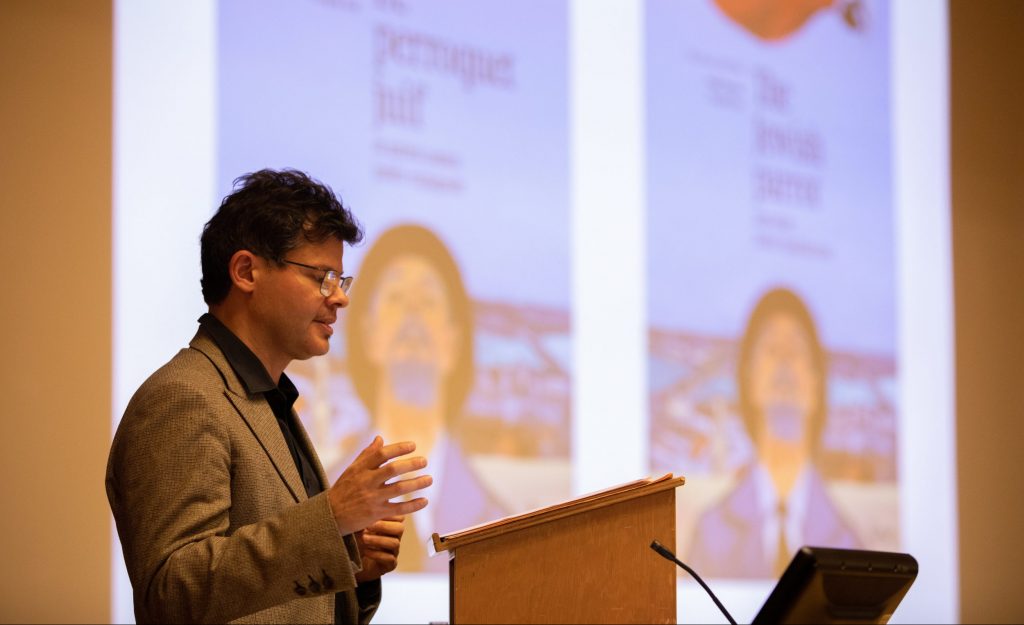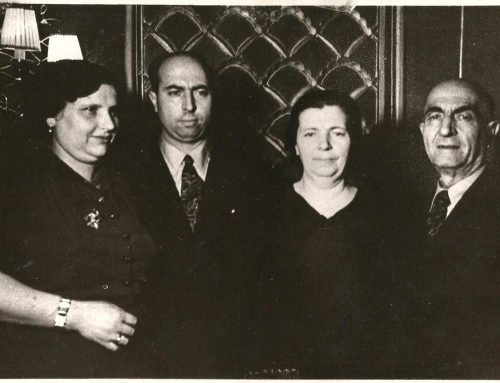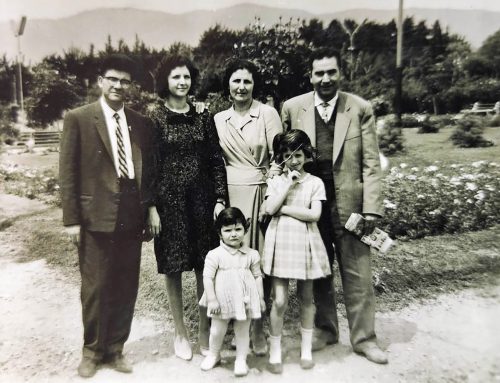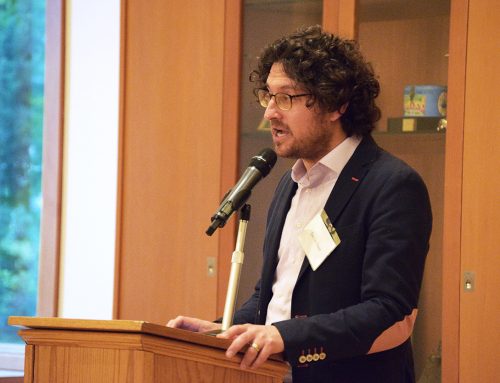
Author François Azar discusses Sephardic folktales during International Ladino Day 2018
In this year’s International Ladino Day celebration, Paris-based author François Azar discussed Jewish folktales of the Mediterranean and his two collections of Sephardic tales, “The Jewish Parrot” and “Bewitched by Solika,” and Seattle’s “Ladineros” Ladino-speaking group performed the humorous tale “The Jewish Parrot.”
Watch the entire Ladino Day program now:
Program for Ladino Day 2018
00:05 – Welcome by Devin Naar
13:15 – Introduction by François Azar
17:24 – Performance of “El Papagáyo Djudió” (“The Jewish Parrot”)
27:14 – Keynote: “Jewish Folktales of the Mediterranean” with François Azar
54:35 – Illustrations highlight: “The Jewish Parrot”
Watch just the Ladineros’ performance of “The Jewish Parrot”:
About Sephardic folktales
Judeo-Spanish tales transmit the wisdom and humor of Sephardic Jews, Jews who originated in the Iberian peninsula (present-day Spain) and settled all around the Mediterranean, particularly in the Balkans, Turkey and northern Morocco. Sephardic Jews adapted their neighbors’ tales and legends to their own culture, while also crafting original stories set in their new environments.
Tales were transmitted orally within families, providing entertainment, relief from everyday worries, and a way to laugh off human weaknesses. Through these tales, essential elements of Jewish (and Mediterranean) everyday life are transmitted in a lively, imaginative way.
Ladino Day is made possible through the generosity of the Lucie Benveniste Kavesh Endowed Fund for Sephardic Studies, and our 2018 event was cosponsored by Congregation Sephardic Bikur Holim, Congregation Ezra Bessaroth, Seattle Sephardic Network, the Departments of Spanish and Portuguese Studies, French and Italian Studies, and Linguistics; and the Turkish & Ottoman Studies Program in the Department of Near Eastern Languages and Civilizations.
Learn more:
- “‘Seattle is a Sephardic country’: Behind the scenes of Ladino Day 2018” by Makena Mezistrano (2019)
- “François Azar brings folktales and the French Sephardic revival to Seattle Ladino Day” by Hannah Pressman (2018)
- “Ladino Day Turns to Storytelling — and to the Future” by Hannah Pressman (2018), Jewish in Seattle Magazine







Just a wonderful souvenir. I was privileged and happy to be part of the Ladineros and their performance. I appreciate the art work and English script provided, it made for a very thorough video. Thanks to everyone who produced this and worked on the program. It is truly a labor of love and attending the weekly class is a highlight of my week.
After having worked on the script and working with the cast of characters for a few weeks, I was pleasantly surprised to see the actual video presentation. Great job, everyone.
Thanks for sharing. ♥️